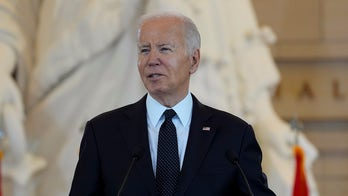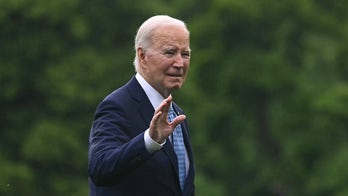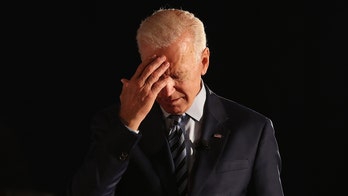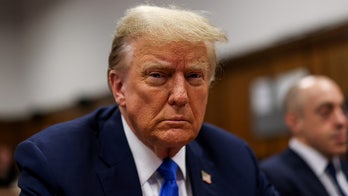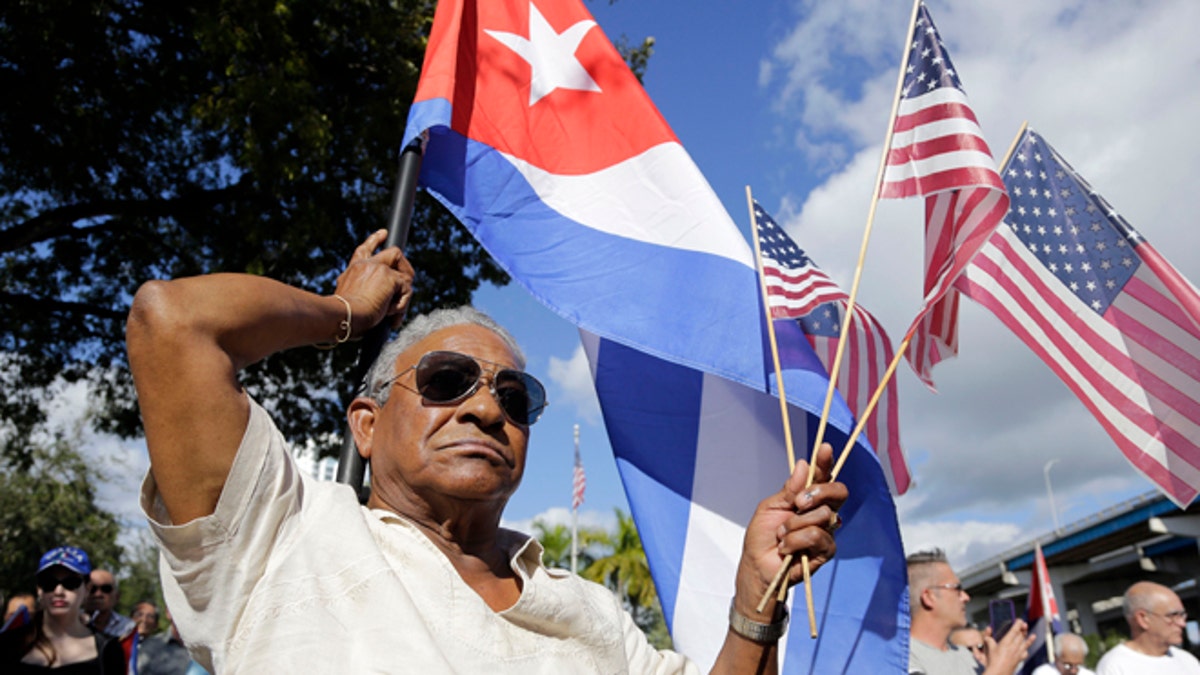
Evilio Ordonez holds Cuban and American flags during a protest against President Barack Obama's plan to normalize relations with Cuba, Saturday, Dec, 20, 2014, in the Little Havana neighborhood of Miami. Florida newspaper editors voted President Barack Obamas mid-December move to normalize relations with Cuba as one of the top stories of the year. (AP Photo/Lynne Sladky) ((AP Photo/Lynne Sladky))
An Obama administration official says that Cuba may soon be removed from the State Department's terrorism watch list.
Stefan Selig, the U.S. Under Secretary of Commerce for International Trade, said at a New York City conference on business opportunities in Cuba that taking the island nation off the list of sponsors of terrorism “could occur in the near future.”
Selig said that to remove Cuba from the list would be an important step to normalizing relations with the United States, according to published reports.
He said that Cuba “must be eliminated from that list because the world has changed since the time in which they were included. It’s consistent with the politics of President Barack Obama.”
Selig made his remarks in a press conference Wednesday at the NASDAQ headquarters, the location for the Cuba Opportunity Investment Summit, which was coordinated by the Wharton School of Business at the University of Pennsylvania.
Selig said that the normalization of relations between the United States and Cuba would benefit the people of Cuba. He also said the decades-old trade embargo should be lifted.
Cuba is one of four countries on the U.S. State Department’s terrorism list. The other three are Iran, Sudan and Syria.
These nations, the State Department website says, “have repeatedly provided support for acts of international terrorism.”
Cuba was put on the list in 1982, Iran in 1984, Sudan in 1993 and Syria in 1979.
Being put on the list results in actions by the U.S. such as “restrictions on U.S. foreign assistance; a ban on defense exports and sales; certain controls over exports of dual use items; and miscellaneous financial and other restrictions,” according to the State Department.
The State Department says that Cuba has given refuge to members of Basque Fatherland and Liberty (ETA) and the Revolutionary Armed Forces of Colombia (FARC).
The agency also noted that "the Cuban government continued to harbor fugitives wanted in the United States. The Cuban government also provided support such as housing, food ration books, and medical care for these individuals."
Many opponents of normalizing relations with Cuba unless it takes significant steps toward democratic reforms say it should remain on the terrorism list because its officials clearly support nations that are threats to U.S. national security.
Members of Congress such as Rep. Ileana Ros-Lehtinen, a Florida Republican, and Senators Marco Rubio, also a Florida Republican, and Robert Menendez, a New Jersey Democrat, have said Cuba's relations with the governments of countries such as Iran and Syria require that it continue to be on the terrorism watch list.
While Selig portrayed the removal of Cuba from the list as an inevitability, another Obama administration official was more measured.
Roberta Jacobson, Assistant Secretary of State for the Western Hemisphere, said that it was not prudent to predict exactly what would result from her agency’s review of Cuba and the terrorism list, according to the Miami Herald.
“There’s no conclusions and we can’t prejudge its results,” said Jacobson, who has played a pivotal role in discussions between the U.S. and Cuba since President Barack Obama and President Raul Castro announced in December the momentous change in relations between the long-time adversaries.
“I know it appears as if we haven’t achieved anything but after 50 years of distrust, we’ve made a lot of progress,” she said, according to The Herald. “Publicly, much movement won’t be seen until we open an embassy.”
Jacobson said that human rights has been the hardest issue in the talks between Cuba and the United States.
“There’s still many short-term, arbitrary detentions taking place,” Jacobson said. “Cuba is in the process of an electoral reform but we don’t see any indication that they will allow a multi-partisan democracy to occur.”
“People can’t exercise freedom of expression or association. Cuba thinks that it’s meddling on our part but we believe those are international obligations.”
Like us on Facebook

